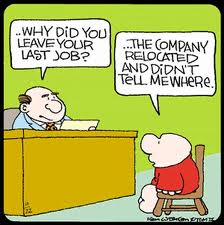Preparing for a job interview can be daunting particularly in today’s highly competitive working world. On one end of the continuum why not let the hiring manager lead the interview and just respond – after all, he or she knows what is needed. At the other end of that continuum is the idea that the interview is about selling yourself and so maybe you should decide your strongest features for the job and focus on pushing them? The answer is somewhere in between with two added components.
Interaction is the Key
Interaction is the “trick” to a good interview. Neither end of the continuum works well because each is too one sided. You want to get a conversation going. Before the interview learn something about the company and the area where your potential assignment exists. The best sources for this kind of information are the web, people you know at the company, and the position description which your staffing firm has. Become familiar with the company’s approach to the market, its products, and the vocabulary it tends to use. Of course you can’t become an expert on any company from the outside, but showing knowledge of what they do and how they do it, is a compliment to your potential employer and shows you are interested in the job. It will also make you a better listener to what the hiring manager tells you.
Emphasize Why You Believe Your are a Great Fit
Do your homework on how you believe your experience, knowledge, and skills are the best fit for the job. This is crucial as this is the reason you will be hired. Think about examples of your use of these capabilities in your past. If you have questions about the situation that helps you make a determination about whether the fit is there or not, prepare them in advance. But remember not to take over the whole conversation! Use these examples and points as you answer their questions.
The Role of Questions
Ideally your questions should get answers that are important to you and revolve around how you might approach the assignment. When answering behavioral questions such as “What is your greatest weakness?” remember that weaknesses are also strengths so start there by describing your weakness in positive terms, then continue on to tell how you have learned to moderate your weakness so that you show yourself as a learner.
Professional Image
We have all known for years that you need to “dress for success” and most carefully consider what they wear to an interview. But, let’s go a step further. Your verbal habits also communicate your professionalism. Check your language for its respectability and also whether you habitually use phrases such as “right?” or “OK?” or “you know.” These can be particularly irritating to those you work with and thus detract from your image.
Don’t Go Too Far
Finally, remember to wait until you have the offer before you do any negotiating of terms of employment. An interview usually means there are still others in the candidate pool so it is premature to talk about the specifics of the employment deal. When you have the job offer is when you should begin such negotiations.
As a contract worker, you will be involved in many, many job interviews. Develop a preparation check-list so you show yourself to your best advantage!
Sally Power, Ph.D. is a writer, researcher, and personal consultant accelerating successful career transitions.
